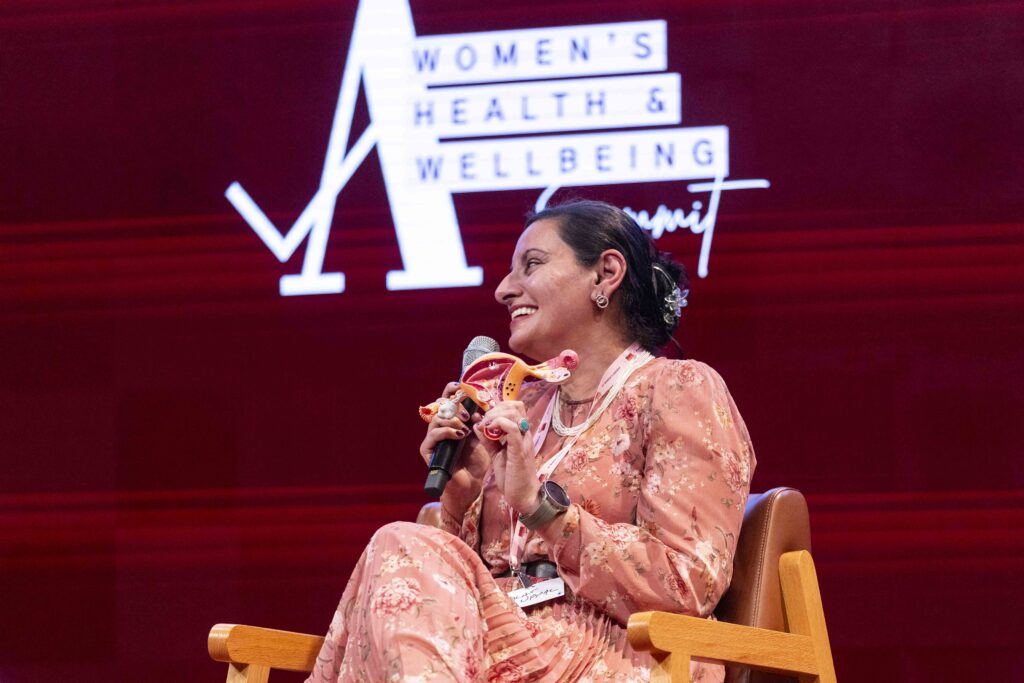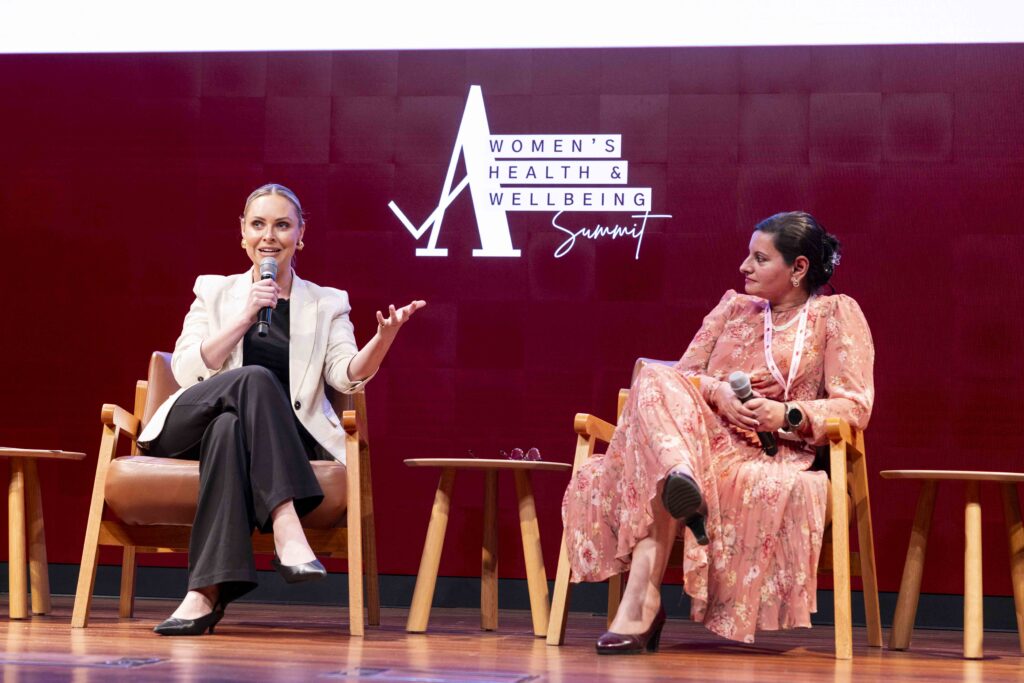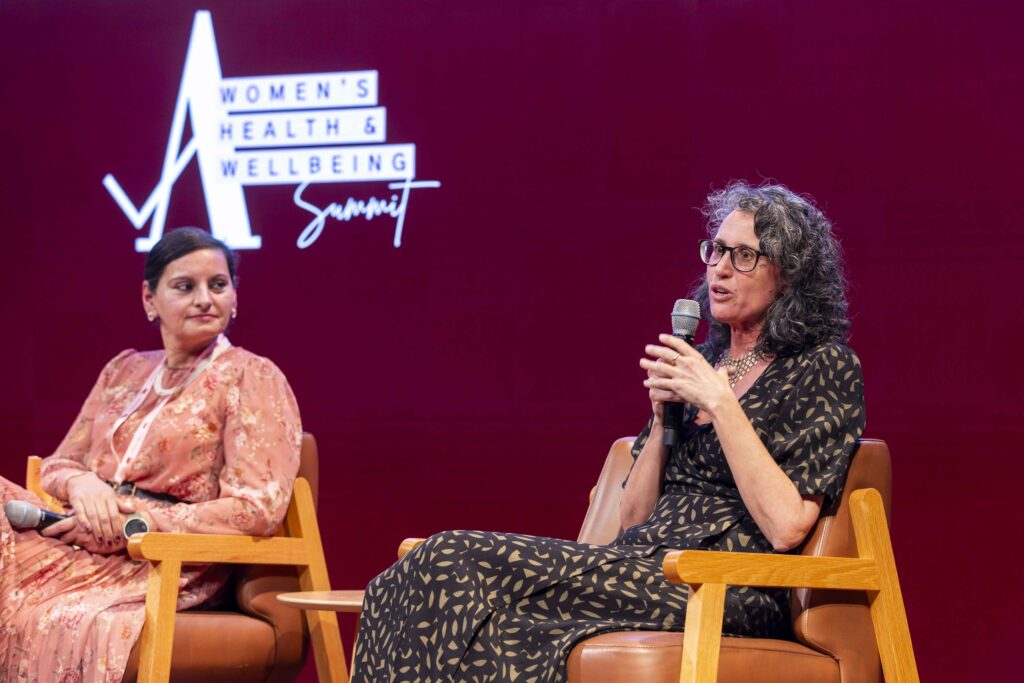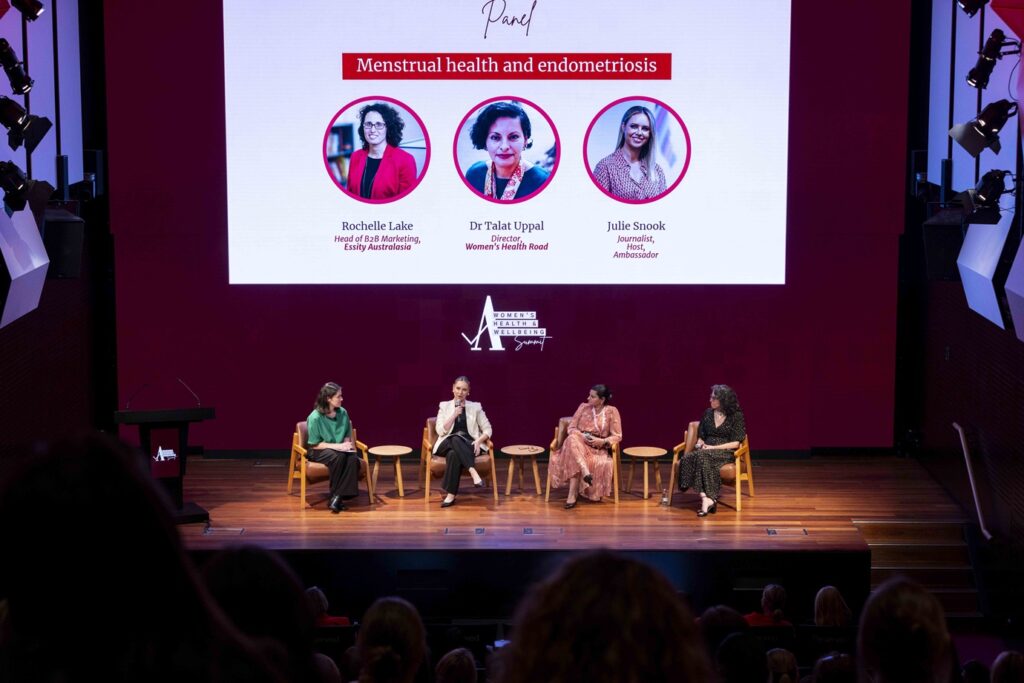Periods, menopause, endometriosis— menstrual health is all too often viewed with taboo and stigma, and many women feel discomfort when discussing this very natural health topic.
Nevertheless, menstrual health issues affect the daily lives of millions of women in Australia, with certain communities facing even more heightened shame around the matter.
In an effort to normalise conversations around women’s health, three expert panellists recently spoke on menstrual health at the 2024 Women’s Agenda Health & Wellbeing Summit in Sydney.
The Menstrual Health session heard from Dr. Talat Uppal, Ambassador for Endometriosis Julie Snook and corporate hygiene health advocate Rochelle Lake.
“As a gynaecologist, one thing I find very heartening is that mothers bring their daughters in and say, ‘Look, I had the same problem. I didn’t get support, I wasn’t able to debrief, I wasn’t able to get the medical support I needed, but I want it to be different for my teenager’”, said Dr Uppal, a Sydney-based Gynaecologist and the Director of Women’s Health Road.
“We’re hoping that full circle will come through, and that women will continue to be supported with periods in a positive way,” she said, adding that menstrual health should be treated as a natural function like breathing or eating.

Heavy menstrual bleeding
This year, Dr Uppal launched the first ever International Heavy Menstrual Bleeding Day (May 11th) through her charity initiative, Bleed Better. This work is focussed on raising awareness, challenging stigmas and improving access to care for those with heavy menstrual bleeding.
“I’ve always had a passion for looking after women with abnormal uterine bleeding,” said Dr Uppal, noting that heavy menstrual bleeding affects 25 per cent of women of reproductive age.
“Let that sink in,” she said, “one in four women will have heavy bleeding, and it’s typically clustered more to the reproductive ends, so adolescence, and also on the other side, perimenopause.”
“Because heavy bleeding is actually more common, and half of women are not going to have pain, that group remains as an orphan of our system.”
This knowledge is what drove Dr Uppal to build awareness for heavy menstrual bleeding. She reached out to many different organisations and was able to successfully create an international day for the issue.
“Please watch out for [the day 11 May], she said. “Please kindly share it when it comes out. It’s an intention to raise awareness and then eventually, hopefully, to optimise access to request funding and to be able to deliver better care for women with heavy menstrual bleeding.”
Endometriosis
Another aspect of menstrual health that deserves more recognition is endometriosis, a chronic and often painful condition that occurs when some of the tissue similar to the lining of the uterus (womb), called the endometrium, grows outside of the uterus.
In Australia, endometriosis affects at least one in nine girls, women and those assigned female at birth.

Endometriosis Australia Ambassador and highly respected journalist Julie Snook has firsthand experience with the condition, as she was diagnosed at 19-years-old having never heard the term mentioned before.
Julie Snook is a highly respected multi-media professional and major network television presenter. She has been working in the Australian media for more than 18 years
Julie has been an Endometriosis Australia Ambassador since 2018, speaking at forums and in mainstream media.
“I had never heard the word, I had never been introduced to the word, no one around me had ever mentioned it,” said Snook.
“I’ve had 13 surgeries now over the past few years,” she said.
“To be honest, I didn’t really start talking about my experience, my situation, until probably five or six years ago, when I was working at Channel Nine and basically got fed up– I got fed up with having to put on a brave face. I got fed up with having to whack on the makeup and stand in front of the camera and be okay when I wasn’t. And I got fed up with keeping it from friends and from family.”
While Snook says “it hasn’t been an easy road”, she’s determined to make change for others, particularly through her work with Endometriosis Australia, which is aiming to get 100 nurses trained with the Australian College of Nursing specialising in endometriosis and pelvic pain.
“We want 100 nurses so they can go out to our regions, they can go out to our centres, and they can offer that support to these patients,” said Snook.
“So, when you come in and you see your nurse, that nurse knows what you’re talking about, that nurse can understand those symptoms.”
“Having these conversations, raising awareness, changing the dialogue within all genders, not just women, but with men as well, is really important. So I think we’ve come such a long way.”
Access to period products
Implementing these changing attitudes into tangible solutions in the workplace is another critical aspect to the conversation around menstrual health.
Speaking to this issue, Rochelle Lake, Head of B2B Marketing at Essity Australasia, says providing period products for employees is a simple and powerful way for businesses to enact meaningful change.

“Within my company, we’ve been manufacturing period care products here in Australia for 40 years, and we’ve been researching women and periods and young girls and their experience with periods for many, many years,” said Lake, noting that there’ve been some fascinating results on the matter from one of their recent studies, “focusing on the impact of women having periods in the workplace”.
The study found that about 20 per cent of women in the workplace have to choose between buying period care products and other essential items, which highlights the importance of addressing period poverty.
“Our research shows that there’s a very high majority of women that have had their period unexpectedly,” said Lake. “Also a high majority of women haven’t always had the product available when they needed it, so [providing period products at work is] just a very practical support thing that you can do.”
Lake also notes that when workplaces provide period products for employees, there is an emotional support benefit.
“Women who had access to period care products at work– around 78 per cent of them felt less anxious at work because the product was there and available for them.”
“And from the responses of over 1000 women, providing access to period care products, was the number one [need].”



